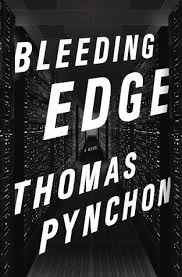I’ve had a rough year. I had two dogs die, my house has needed some expensive repairs, and my habit of closely following the news has turned into daily exposure to toxic waste. We all crave simple comforts in difficult times, and I’ve fallen back into an old habit: when I’m in the mood to read comforting trash, I reach for Tom Clancy. And after the current bender, I think we should talk about him a little.

Right now, through time and space, I can hear the question you’re asking yourself: why do I care about the work of some hack writer of right-wing airport trash who’s been dead for a decade? And that’s a good question, one I’ve been wrestling with inside my head for a while now. I have a few solid answers: first, because the work of said dead right-wing hack writer really does provide a perfect encapsulation of one of the dominant forces in our dyspeptic, sliding-through-disasters-towards-even-greater-disasters political system, and to understand that is to understand another corner of the current ongoing shitshow. Tom Clancy’s books are by, of, and for Boomer Dads, and if understanding the mind of the Boomer Dad isn’t sufficient to understanding what the hell is happening in this country, I think it’s at least necessary.
Continue reading TOM CLANCY AND THE DUBIOUS COMFORT OF BOOMER DADS One of the recurring themes of my adult life has been my getting the itch to go back and take a look at some book or movie or album that I loved when I was younger but haven’t re-engaged with for a while. The vast majority of the time, I walk away from the revisit shaking my head and telling myself that hey, it’s no crime to
One of the recurring themes of my adult life has been my getting the itch to go back and take a look at some book or movie or album that I loved when I was younger but haven’t re-engaged with for a while. The vast majority of the time, I walk away from the revisit shaking my head and telling myself that hey, it’s no crime to 